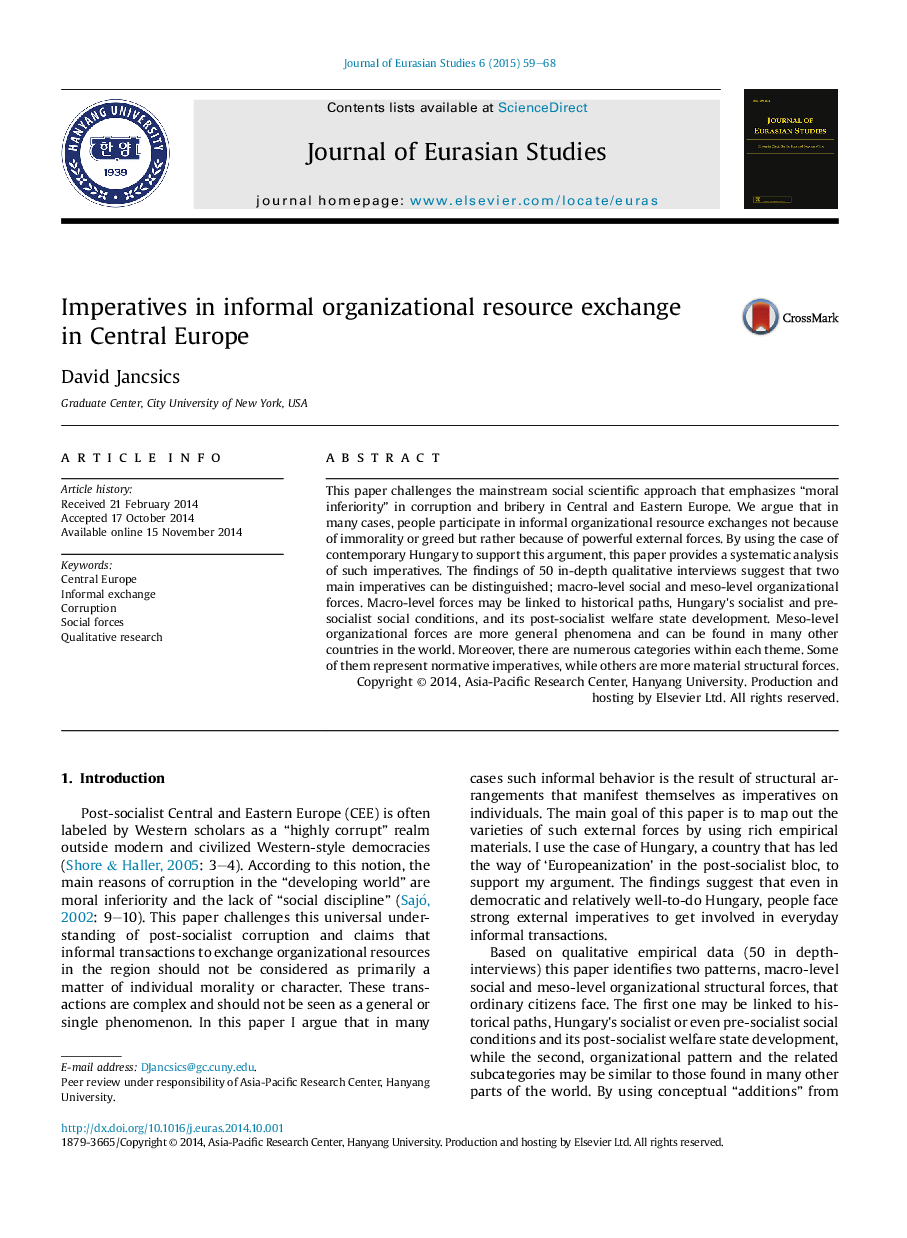| Article ID | Journal | Published Year | Pages | File Type |
|---|---|---|---|---|
| 1127235 | Journal of Eurasian Studies | 2015 | 10 Pages |
This paper challenges the mainstream social scientific approach that emphasizes “moral inferiority” in corruption and bribery in Central and Eastern Europe. We argue that in many cases, people participate in informal organizational resource exchanges not because of immorality or greed but rather because of powerful external forces. By using the case of contemporary Hungary to support this argument, this paper provides a systematic analysis of such imperatives. The findings of 50 in-depth qualitative interviews suggest that two main imperatives can be distinguished; macro-level social and meso-level organizational forces. Macro-level forces may be linked to historical paths, Hungary's socialist and pre-socialist social conditions, and its post-socialist welfare state development. Meso-level organizational forces are more general phenomena and can be found in many other countries in the world. Moreover, there are numerous categories within each theme. Some of them represent normative imperatives, while others are more material structural forces.
